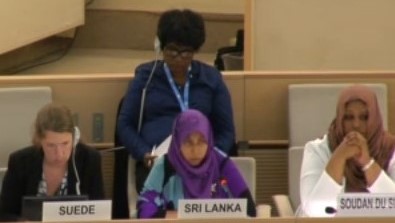
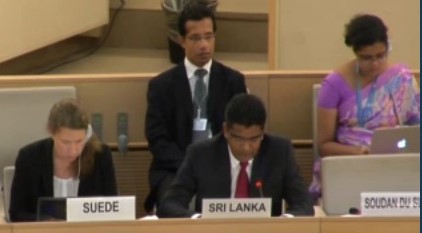
Unilateral coercive measures hinders the fostering of a democratic and equitable international order
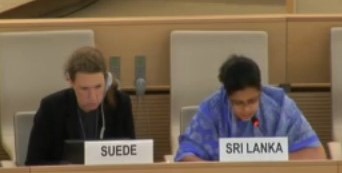
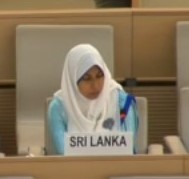
Intervening in the interactive dialogue with the Independent Expert on the enjoyment of all human rights by older persons at the 27th UN Human Rights Council in Geneva on 9th September 2014, Sri Lanka reiterated its full commitment to address the increasing challenges of the ageing population, and reaffirms its unwavering commitment to upholder the rights, dignity and the wellbeing of the older persons.
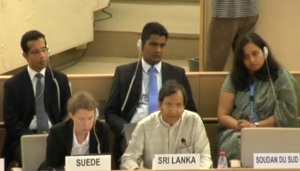
Sri Lanka's Permanent Representative to the UN in Geneva and Leader of the Sri Lanka delegation Ambassador Ravinatha Aryasinha addressing 27th Session of the Human Rights Council in Geneva today (8 September 2014), welcoming the new High Commissioner Zeid Bin Ra'ad Al-Hussein on his appointment, said, "his wide experience in diplomacy, in-depth knowledge of the UN system and understanding and respect for social and cultural characteristics are useful assets that will guide the work of the OHCHR, consistent with the IB package and based on the fundamental principles of universality, impartiality, objectivity, non‑selectivity, constructive international dialogue and cooperation". He observed that "despite Sri Lanka's non-recognition of the politically motivated resolution on Sri Lanka during HRC 25, Sri Lanka would continue to engage with the regular mechanisms of the Council, and looked forward to the opportunity to engage during Sri Lanka's fifth periodic report under the ICCPR next month -October 2014".
Sri Lanka has strongly rejected the inference that the presence of the military contributes to the insecurity of women and girls in the former conflict-affected areas.
Exercising a 'Right of Reply' with regard to the statement made during the General Debate under Agenda Item 4 by Canada, claiming ‘ongoing use of rape and sexual violence by Sri Lankan security forces against perceived government opponents,’ Sri Lanka said this claim is not substantiated by verifiable data or evidence. It was noted that any allegations supported by credible evidence are dealt with firmly by the authorities and legal action has been taken by the Government in all cases in which the Sri Lankan security personnel have been involved.
- Sri Lanka briefs Human Rights Council on action taken by Government following incidents of communal violence
- Sri Lanka says preserving and enriching multicultural and multilingual diversity is a first step in promoting better understanding among different communities
- Sri Lanka committed to eradicating of all forms of human trafficking
